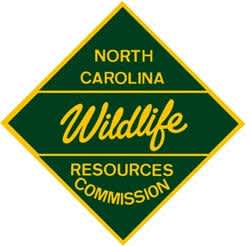N.C. House Passes Resolution Commemorating Wildlife and Sportfish Restoration Programs
OutdoorHub 04.01.13

The N.C. House of Representatives adopted a resolution commemorating the 75th anniversary of the Wildlife Restoration Act, which has provided more than $14 billion in funds for state fish and wildlife research and conservation programs nationwide.
“I was happy to sponsor this resolution and bring awareness to the $3.3 billion annual impact hunters and anglers have on North Carolina’s economy and the multiple successes of our wildlife conservation programs,” said Rep. Tim D. Moffitt, who sponsored the resolution.
The Wildlife Restoration Act, also known as the Pittman-Robertson Act, authorized a federal excise tax on sporting arms, ammunition, archery equipment, and handguns. The Department of Treasury collects the excise taxes, and the U.S. Fish and Wildlife Service dispenses money among state fish and wildlife agencies to fund projects that conserve wildlife populations and improve hunter access and hunting opportunities. These funds have contributed to robust populations of white-tailed deer, wild turkey and black bear, making North Carolina a premier hunting destination in the southeast.
A similar funding mechanism to increase fishing and boating opportunities was created in 1950 with the passage of the Sport Fish Restoration Act, also known as the Dingell-Johnson Act, which authorized an excise tax on fishing equipment. The Wallop-Breaux amendment of 1984 added additional funds through federal gasoline excise taxes, attributable to motorboats by a formula based on boat registrations. These funds have increased the habitats and populations of bass, trout, striped bass and many other species popular with anglers, while also creating public boating and fishing access areas for recreational enthusiasts.
“This tremendously successful partnership among state and federal agencies and the shooting, hunting, fishing and boating industries has helped the N.C. Wildlife Resources Commission acquire lands for hunting, trapping and fishing, construct and maintain wildlife management areas and fish hatcheries, promote youth fishing, manage wildlife and fisheries resources and provide access to the state’s public waters,” said Gordon Myers, executive director for the Commission. “We are grateful for the support of Rep. Moffitt and the N.C. House for supporting this important source of funding that benefits our entire state.”

